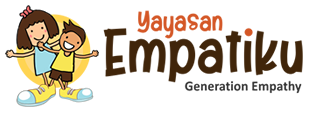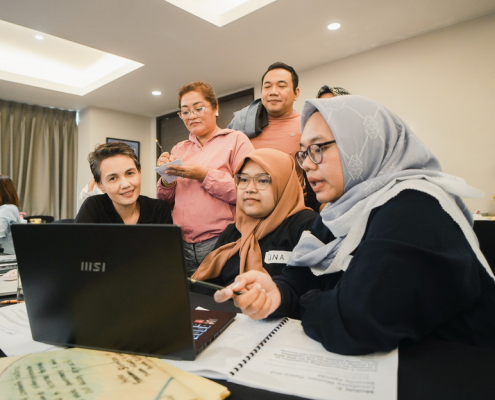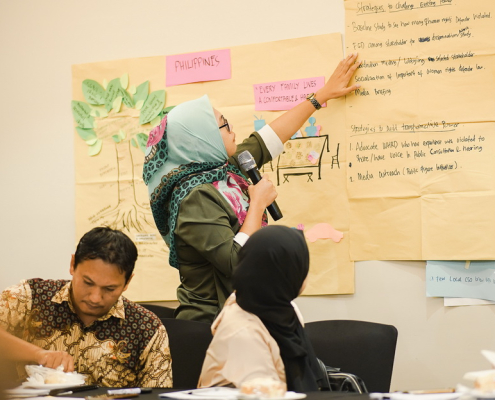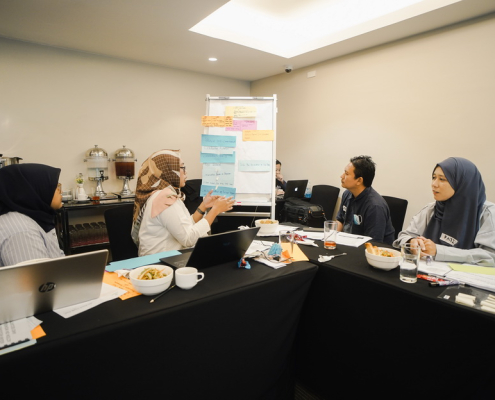Head of the Terrorism Study Program at the UI School of Strategic and Globalization Studies (SKSG), Muhamad Syauqillah said, the balance of human rights protection in the context of security is an interesting study. It is also necessary to see how the restrictions on ideology encourage the crime of terrorism.
“What kind of attitude does the state have so that (ideological restrictions, -ed) are not called the state committing human rights violations,” he said.
Likewise with civil liberties such as expressing opinions and beliefs, what is the right way to regulate this. In practice, there is uncertainty, for example regarding radical terrorism content on social media which cannot be taken down. For that it is important to regulate how the state behaves.
Another issue concerns Indonesian citizens going abroad to join terrorist networks. Then repatriation or repatriation is carried out. Syauqillah said the process of repatriation, reintegration and rehabilitation was difficult. One of the reasons is that the approach between interested parties does not yet have good synergy between ministries/agencies and civil society.
It is necessary to determine which institution is in charge of the return process as well as reintegration and rehabilitation. Syauqillah has not seen the government implement adequate instruments, both procedures and human resources who handle it. One of the important policies that needs to be issued by the government is a mechanism or procedure regarding the repatriation, reintegration and rehabilitation of children affiliated with terrorism.
The deradicalization program initiated by civil society is also not integrated with similar programs carried out by ministries/agencies. As a result, the program carried out by civil society has the potential to be closely monitored by intelligence and repressed. This happens because there is no deradicalization system that is integrated between state and non-state actors. Without intending to limit the work that has been carried out so far by civil society organizations, Syauqillah is pushing for a communication mechanism to be built between the government and civil society organizations in dealing with terrorism.
Source:
https://www. Hukumonline.com/berita/a/terrorism-merupakan-kejahatan-serius–bukan-kejahatan-luar-ordinary-lt64b50aa8d1895?page=all


 This workshop consisted of two sessions and was facilitated by Maricel Aguilar. The first session discussed ‘Introduction to Gender and Peace’ which included issues of gender and sex dichotomy, protection against gender-based discrimination and violence, and human security. Then, the second session talked about ‘Gender Issues and The Role of Social Institutions’ and its relation to the impact of a gender perspective in social institutions. It contains how the dimensions of gender, issues of patriarchy and transformative masculinity affect interpersonal, internal, institutional and ideological. The online workshop session was closed with a discussion on women’s rights and gender equality in Southeast Asia and the role of the government in each country in responding to this issue.
This workshop consisted of two sessions and was facilitated by Maricel Aguilar. The first session discussed ‘Introduction to Gender and Peace’ which included issues of gender and sex dichotomy, protection against gender-based discrimination and violence, and human security. Then, the second session talked about ‘Gender Issues and The Role of Social Institutions’ and its relation to the impact of a gender perspective in social institutions. It contains how the dimensions of gender, issues of patriarchy and transformative masculinity affect interpersonal, internal, institutional and ideological. The online workshop session was closed with a discussion on women’s rights and gender equality in Southeast Asia and the role of the government in each country in responding to this issue. From these activities, the participants were able to map the challenges, opportunities and implementation of women’s issues and peace. Apart from that, it also discussed the efforts of each country to advocate for gender issues in peace building. Pipit also stated that from this workshop, he could increase his knowledge of the International Legal Framework (UNSC 1325) and the Regional Framework (ASEAN RAP on WPS) and reflect on the current legal framework in Indonesia.
From these activities, the participants were able to map the challenges, opportunities and implementation of women’s issues and peace. Apart from that, it also discussed the efforts of each country to advocate for gender issues in peace building. Pipit also stated that from this workshop, he could increase his knowledge of the International Legal Framework (UNSC 1325) and the Regional Framework (ASEAN RAP on WPS) and reflect on the current legal framework in Indonesia. EMPATIKU works to innovate learning processes and transform institutional systems to foster people’s emotional competence and instill empathy.
EMPATIKU works to innovate learning processes and transform institutional systems to foster people’s emotional competence and instill empathy.